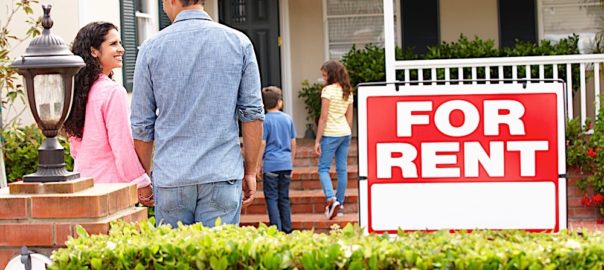5 Risks Every Rental Property Owner Must Acknowledge
By Paul Esajian on November 17, 2017
There are risks everywhere in the world of real estate. Even the most straight forward deal can become a mess if you do not know what you are getting into. On the surface owning a rental property and generating cash flow seems simply enough. You find a quality property, in a quality neighborhood and wait for checks to pour in. As great as this scenario may be it is rarely always this easy. Like anything in real estate, just a few shifts in the market or a few unexpected problems can change the entire complexion of the property. Instead of having a property that generates cash flow you are forced to spend money to solve a problem. If not done right a small problem will turn into a much bigger one and before you know it, you are looking to unload the property and move on. With a rental property the rewards typically exceed the risk, but you need to know just what you are getting into. Here are five rental property risks that every owner must acknowledge.
- Market fluctuation. There should be a different mindset when owning a rental property and working on a fix and flip deal. Most short-term rehabs are time sensitive and need the current market to be trending upwards. With a buy and hold rental there is no need to constantly monitor where the market is. By the time you get around to selling it could be years down the road. What is important to look for are long term trends that can impact future value. Increased unemployment, high crime rates, foreclosures, vacancies, school closings and rising taxes are all indicators that the market may be in decline. This decline may take months or even years to realize but when it does it will have a definite impact on the value. If the market declines at some point in the future, you will feel the it when it is time to sell. You may be better off selling a year too early rather than a year too late.
- Tennant problems. In a perfect world all your tenants would pay their rent on time and take pristine care of your property. As any current landlord will tell you this is not always the case. All it takes is one bad tenant to completely change the management of the property. A bad tenant can have you constantly chasing the rent after the first of the month, or even worse stop paying all together. If a tenant stops paying you will be forced to pay the mortgage out of your pocket. All the while you will try to evict your tenant and get them out of the property. This process can literally take months depending on your town and the exact situation. An eviction is truly the exception rather than the norm, but it must be at least considered. If you do not have at least three months of payment reserves you leave yourself susceptible to one bad tenant wiping you out.
- Repair costs. Evictions are not the only reason you should have at least a few months of reserves. There are always a handful of minor repairs that happen from time to time. Alone, these will not wipe you out but without reserves on hand to deal with them they will change how you manage the property. Instead of dealing with the problems as soon as they present themselves you will wait a day or two until you have your money in order. Having your tenant wait a few days to repair the toilet will feel like an eternity to them. This impacts how they feel about you and the property. Instead of possibly renewing their lease they will change their mind and find somewhere else. Even worse they won’t go the extra mile to take care of the property which could present long term deferred maintenance issues. You may go months without any repairs than in a two-week span be forced to deal with a handful of items.
- Structural problems. Minor repairs, even evictions, will be costly but may not be the worst thing to happen with the property. It is important to recognize that your rental must be treated like your primary residence in that things will need to be repaired or replaced over time. Big ticket items like your roof, furnace and foundation can easily cost thousands of dollars to repair. With capital, or credit, to repair these items you will be left scrambling for answers. A roof may only need to be replaced every fifteen years or so, but it still need to get done. You can only push it off for so long before it impacts your insurance and the demand for the property.
- Rent declines. Rental demand is as strong as it has been at any point in the last twenty years. With many would be buyers still more comfortable renting this doesn’t appear to be a trend that will change any time soon. However, you need to brace for the fact this can change on a dime. If rental demand declines it will directly affect how much you can charge for rent as well as the terms of your lease. A 20% reduction in rent may not seem like much but over the course of the lease will equal hundreds of dollars in lost rent. If this becomes a long-term trend it will impact how you view and value the property.
Rental property ownership can completely transform your portfolio, but it doesn’t come without at least some risk. The rewards usually outweigh the risk, but you must know what you are getting into before getting too far.